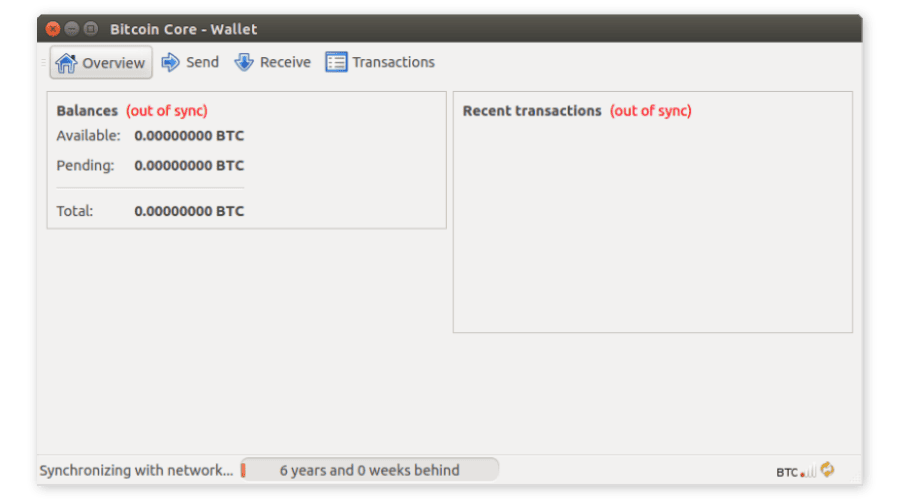You’ve likely heard “not your keys, not your coins” before, but what happens when no one has the keys? Not you, not the exchange, no one. Lost Bitcoins, like lost treasure, has time and time again slipped through the fingers of their owners, now far beyond the realm of retrieval and lost to all forever.
Contents
What Happens To Lost Bitcoins?
When bitcoins are considered lost, they become inaccessible or are unable to be spent. As bitcoin transactions are irreversible once they have been added to the Bitcoin Blockchain, if mistakes are made there is no way to recover access to the locked funds.
In this instance, it’s different to when someone has their funds stolen or “lost”. This is because although they may have lost their bitcoin, another person (or thief) still has the ability to spend them. As such for this article we’re only referring to bitcoin that are forever and permanently lost to everyone.
Some of the most common ways that bitcoin owners have forever lost access to their bitcoin is through simple human error rather than something complex you might see in a movie. These include:
- Loss of the private keys (via natural disaster, accident, death etc)
- Loss of the password or login credentials that encrypts the private keys
- Incorrect bitcoin transaction due to wrong locking script or sending to an inaccessible wallet
How Many Bitcoins Are Lost?
There is no exact way to know how many bitcoin are irreversibly lost. This is because coins stored in a wallet address could be lost or inaccessible, but no one would know. To an outside observer they would just appear to be staying put in their wallet forever. Most estimates conclude that around 3-4 million bitcoin will never be recovered or moved.
Astonishing Bitcoin Fortunes Now Lost
- Satoshi Nakamoto: Creator of Bitcoin, Satoshi Nakamoto was the first to mine bitcoin resulting in an enormous stash of over 1.1 million bitcoins. While it’s unknown if they still have access to these funds, none have ever moved since they were first mined
- Individual X: Believed to be a thief that stole 69,000 bitcoin from the infamous Silk Road black market website, Individual X is apparently known to the US government
- James Howells: After acquiring 7,500 bitcoin James stored his bitcoin wallet on an old laptop hard drive which he then accidentally discarded in 2013. It’s now somewhere in the Welsh town landfill, burred forever
- Stefan Thomas: Buying 7,002 bitcoin way back in 2011, Stefan stored his bitcoin wallet on a Kingston IronKey USB drive and then promptly forgot the password. With only 10 attempts to guess it, no one has been able to recover the funds so far
- Gerald Cotten: Co-founder of a Cryptocurrency Exchange QuadrigaCX, Gerald died of cardiac arrest in 2018, taking the private key for the majority of the exchanges funds with him to the grave
How Can I Recover My Lost Bitcoin?
As Bitcoin is a decentralized, peer-to-peer network with no government or institution at the helm, there is no “admin” users can turn to in order to help them recover their lost bitcoin. As noted, transactions are final and even if there is tens of billions of dollars as a reward, they still cannot be recovered if lost.
While this can sometimes scare users away from using Bitcoin, the tools and ways users can protect their digital wallet today are much more advanced than even a few years ago.
Bitcoin Recovery Using A Seed Phrase Or Private Key
A seed phrase is a group of 12 or 24 words that is used to backup your wallet. Since the introduction of BIP-0039, most major bitcoin wallets have switched over to using it as the main form of backup and it’s a substantial improvement.
The mnemonic sentence is made up from a list of 2,048 specifically chosen words and can be stored in any number of ways. From simply writing it down on a piece of paper to engraving it in steel, all you need to do to recover your wallet from it is download a compatible software wallet program and enter them.
From here the program will regenerate your entire wallet along with all child wallets and addresses giving you full access to your funds. With most wallets this option is under “Recover Wallet” or something similar.
Restoring Bitcoins Using The Wallet.dat File

The wallet.dat file is what Bitcoin Core uses to store all your wallet information such as private and public keys, scripts, key metadata such as labels and transaction history. While most users no longer use Bitcoin Core as their wallet of choice, it was popular many years ago and led to many losing their bitcoin due to failed hard drives or forgotten passwords.
To regain access to your bitcoin wallet using a wallet.dat file you simply need to install and fully sync Bitcoin Core and then import the file into the bitcoin folder. One thing that trips up many users is that it can be encrypted with a password that they’ve since forgotten.
Wallet encryption is done using AES-256 with a master key which is entirely random. This master key is then encrypted with AES-256 with a key derived from the passphrase using SHA-512. As such, if you don’t have a record of this in a password manager or similar, then it’s impossible to recover the private keys using brute force.
If you think you’ve got the skills (and GPU cluster) to do the impossible, there are hundreds of encrypted wallet.dat files available for purchase. Guess the right password and you get access to all the bitcoin inside it, with some having over 12,600 bitcoin worth hundreds of millions of dollars!
How Can I Avoid Losing My Bitcoin Wallet?
Much work has been done over the past decade to help users ensure they don’t lose access to their digital assets. From seed phrases to Multisig Wallets to the latest miniscript enabled wallets that allow you to recover your funds even if you lose access to your private keys it’s getting better every day.
There are also multiple different parts to protecting your private keys which is why we have a dedicated piece on. This covers everything from which wallet to use right through to terrible ways people have used in the past.
>> Deep Dive: How To Protect Your Bitcoin Private Key
In short though, for those that are protecting funds they don’t wish to lose you should:
- Take full control of your bitcoin private keys
- Store them using a non-custodial hardware wallet
- Make multiple copies of your private key and store them in 2 or more safe locations
- For those protecting serious investments learn about and use a Multisig wallet
| Level | Beginner | Advanced | Expert |
|---|---|---|---|
| Funds Amount | Pocket Money | Savings Account | Serious Investments |
| Exchange Type | Non-KYC | Non-KYC | Non-KYC |
| Wallet Type | Software (Hot) / Hardware (Cold) | Hardware (Cold) | Hardware (Cold) |
| Signature Type | Single Signature | Single Signature | Multisig |
| Key Custody | Self Custody | Self Custody | Self Custody |
| Key Backup | Laminated Paper | Laminated Paper | Metal Seed Plate |
| Key Locations | 1+ | 2+ | 2+ |
| Key Security | None | Fire Proof Safe | Multiple Methods |
| Own Full Node | No | Yes | Yes |
| Electrum Server | Public Electrum toggle_on | Private Electrum toggle_on | Private Electrum toggle_on |
| Tor | No | Yes | Yes |
What Does Lost Bitcoin Mean For The Rest Of The Bitcoin Network?
Lost coins only make everyone else’s coins worth slightly more. Think of it as a donation to everyone.
Satoshi Nakamoto
As bitcoin has a fixed supply of 21 million bitcoin, any lost bitcoin simply increases the value of those that are remaining. There is no harm to the network because of these lost coins and every other user should technically be happy to hear more have been lost as it makes their stash more valuable.
Scammers & Crypto Asset Recovery Services
If you do have a wallet.dat file or other bitcoin account that you cannot access be very careful when dealing with crypto asset recovery services. While we aren’t saying that they’re all scammers, it’s unfortunately often the case that they are.
They will simply lead you along, asking for money and sensitive information that could be used to hack into your other accounts and steal your data.
FAQ
Can Bitcoin Be Permanently Lost?
Yes. The most common way users permanently lose their access to a crypto wallet is by losing their private keys. Whether they forget where they stored it, accidentally throw it out or have it destroyed by a natural disaster, once your mnemonic phrase is gone your bitcoin cannot be recovers.
How Much Bitcoin Is Permanently Lost?
As of 2022, a report estimated that around 4 million bitcoin has been lost. Due to the nature of Bitcoin and have the network operates it can never be confirmed, but this is the best estimate so far.
Who Has Lost The Most Bitcoin?
Discounting Satoshi, as no one knows whether the private keys to their wallet is lost or not, that biggest current wallet.dat file that cannot be accessed due to a forgotten password is an old mining wallet that has 12,600 bitcoin in it.
What Percentage Of Bitcoins Are Lost Forever?
If we assume that the estimates of around 3-4 million bitcoin being lost forever are accurate, that would equate to between 14.3% and 19% of all bitcoins.



